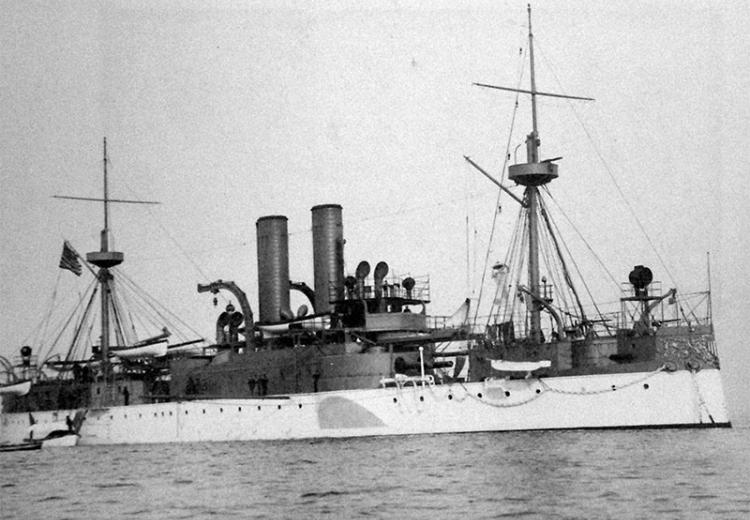Lesson 2: The Spanish–American War

Battleship U.S.S. Maine, at anchor. The explosion in Havana harbor that sank the Maine helped precipitate the Spanish-American War.
On April 11, 1898, two months after the battleship U.S.S. Maine was destroyed by an explosion in Havana harbor, President McKinley sent a message to Congress requesting authority to use the U.S. armed forces to end a brutal civil war in the Spanish colony of Cuba. Congress voted to support Cuban independence, to demand the withdrawal of Spanish troops from the island, and to authorize the use of force to achieve those objectives. On April 25, after Spain broke diplomatic relations and declared war against the United States, Congress formally asserted that a state of war existed. In a whirlwind military campaign, the U.S. Army invaded Cuba and the U.S. Navy destroyed Spanish squadrons in the Caribbean and Manila Bay. Hostilities were halted on August 12, 1898. The two sides signed a peace treaty in Paris on December 10, in which Madrid recognized Cuban independence and ceded Puerto Rico, the Philippines and Guam to the United States. With its victory in the Spanish-American War the United States claimed status as a global power – and, in a relative absence of mind, it acquired something of an overseas empire.
This lesson plan, through the use of primary sources and a WebQuest Interactive, will focus on the causes of the war and the political debate in the United States over the advisability of intervening militarily in the affairs of countries.
Guiding Questions
Was the Spanish-American War a fundamental shift in American foreign policy?
What did the Spanish-American War mean for the role of the press in American politics and society?
Learning Objectives
Examine the causes of the Spanish-American War and evaluate the effects of the war on domestic and foreign policy.
Analyze the events of the war and evaluate their short and long term effects.
Evaluate the connections between the war and the larger political debate over American imperialism.
